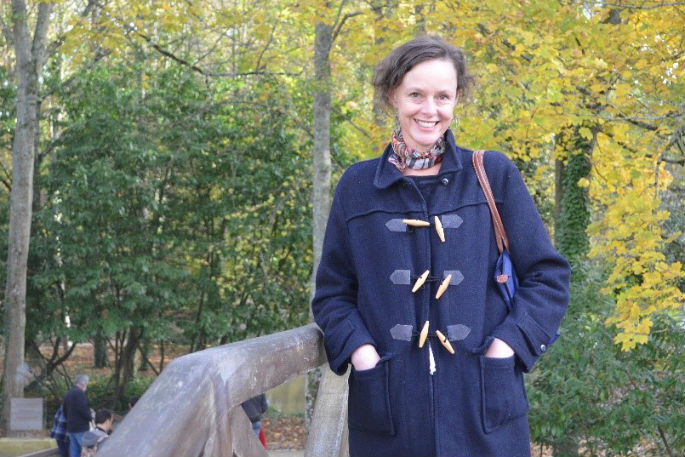A growing awareness of the impacts of toxic agrichemicals on young humans is producing a cultural shift in Europe's parks and gardens, says TAAF member Jodie Bruning.
TAAF is the toxic agri-chemical advisory forum which advises Tauranga city councillors and staff on issues relating to chemical spray use on public property.
Once tightly manicured, European public gardens are losing their prim neatness and redefining the approach to public spaces. It's underpinned by a massive thought-shift, says Jodie.
The edges are softer, trees have longer grass at their base, dandelions pop up, areas of parks are left to ‘wild', grow longer and foster habitat for butterflies, beetles and spiders. When summer dwindles, these areas are mown flat again, preventing establishment of hardy invasive species.
'This change is a result of European progress,” says Jodie. 'Europe cycled through the industrial era, moved more swiftly to a middle class and adopted chemical agriculture much earlier than we did.
'Herbicides helped this transition to perfectly neat public spaces, with edges trimmed impeccably, and messy broad-leafed weeds and painful prickles sprayed out.”
But in the last couple of decades, Europeans have become worried, documenting the decline of bees and butterflies, and treasured birds and mammals. Agrichemicals are disappearing down drains and flowing into groundwater. The natural world is shrinking.
'But it's also personal. They've watched their children become sicker faster than previous generations. Chronic illness from allergies and intolerances, asthma, neurodevelopmental challenges, diabetes, cancer, to juvenile arthritis, have advanced at an alarming rate outpacing any adaption by our genes.
'It's environment exposures influencing genes and human biological systems. Children are not thriving; many families are barely coping.”
These twin challenges resulted in a new wave of European parents that regard the environment and food very differently from past generations. Their kids depend on it.
This has impacted advocacy and politics in Europe. One of the big changes is reduced agrichemical use, known to be particularly harmful to children in public spaces.
'In New Zealand at present we have stalemate,' says Jodie. 'Council budgets are restricted, council chambers are resonating with debate – we can't have the present perfect neatness, trimmed edges, prickle-free paradise, unless we have the spray regime that accompanies it.
'Tauranga City Council has taken glyphosate-based herbicides out of a few parks, and it plans to increase this, but going spray-free – because it is not just Roundup that is harmful – requires a transition in management style in order to balance the books.”
Every council contractor claims current service levels are unachievable if the rug is pulled out from under them, if their chemical tool-kit – the pesticides they use – are withdrawn, says Jodie. Today's specifications prioritise neatness. They demand prim edges and sound a siren if prickles are detected.
'Every council contractor dreads that well-intentioned ratepayer advancing to advise them a section of their park is a bit scruffy, not kept neat enough.
'Yet the science is clear. Pesticides are much more harmful to children. They can damage endocrine systems, harm their brain, contribute to cancer, at very low levels in ways that may not affect adults.
Children – including prenatal exposures, toddlers, and even teenagers – are much more vulnerable.
'Do we keep the chemicals, spray for prickle-weed, so that, perhaps ironically, our children can run barefoot over the grass?
'Or do we learn lessons from the Europeans? Cut grass to a longer length. Explain to neighbours that longer grass shades out onehunga/prickleweed, and encourage contractors to not jump on the mower, or the broadleaf spray at the first sign of an emerging threat.
'Do we rethink risk, and acknowledge that, unlike their grandparents, today's children are born pre-polluted, and exposed to chemicals from the moment of conception, for their life-time.
'Therefore, if we acknowledge the established science that informs us that babies, children and teenagers are much more vulnerable than grown-ups – we can act with precaution, and transition, like Europe, away from agrichemicals in public spaces.”
For questions and further conversations, contact jodie@rite-demands.org.



3 comments
Bees and TCC
Posted on 09-07-2017 16:18 | By socantor01
TCC must hate bees. They sprayed glyphosate on Hallmark Reserve where kids play, dogs run and bees go on the flowers. Where is your sense of responsibility, TCC? BOP is dependant on bees for its survival!
Thanks Jodie - That's a sobering read
Posted on 09-07-2017 21:06 | By Papamoaner
It's of huge concern when our bees get affected. I always regarded them as watchdogs by way of their mere presence or lack of it. I have another concern and would be interested to hear inputs from others on it;- Several times a week I cut H3 treated timber on my mitre saw and the sawdust flies and falls anywhere and everywhere, obviously eventually finding its way into stormwater systems. That's in addition to me breathing the stuff myself and having it on my skin.. We all know that Tanalith is arsenic based. Most of us also know that arsenic is accumulative, ie; the dose you get today is added to the dose you got 2 years ago etc. There are many more people working with tanalised timber, and numerous similar examples and it's all a bit of a worry.
Length of Grass
Posted on 26-07-2017 20:44 | By I like Papamoa.
I would like the grass left really long. But I also think it would be cool to have some 'pathways' mown at the current height which provide sensible access routes to beach, dunny, carpark, playground as appropriate. Maybe also a loop around the perimeter for people taking a stroll. With a bit of creativity I'm sure that alone could reduce the mowing costs by 75% if the tractor just goes over than and leaves. Maybe the tall grass will need a skim twice a year to even it up at around 20cm.
Leave a Comment
You must be logged in to make a comment.